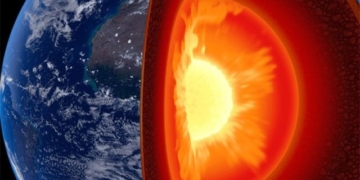A recent study conducted through the collaboration of international scientists has revealed an unprecedented finding – if all the glaciers on Earth were to melt, humanity would face enormous and unprecedented challenges.
As global warming continues to escalate, the melting of glaciers is becoming a ticking time bomb, with the countdown already in progress. This grim reality forces us to ponder: Are we on the brink of an unavoidable disaster?
What Impact Will the Melting of All Glaciers on Earth Have on Humanity?
Humans have interacted with and depended on the natural environment since the dawn of our existence on this planet. However, in recent decades, as global warming has intensified, glaciers on Earth are melting rapidly.
Glaciers are a vital freshwater reserve, and their melting releases a large amount of water into the oceans. According to scientists’ predictions, if the glaciers around the world were to melt, sea levels would rise by several meters, posing a significant threat to coastal cities. Major cities such as Shanghai, New York, and Mumbai are located near the coast; once sea levels rise, these cities will face great risks of severe flooding, and people will confront unprecedented challenges of migration and survival.
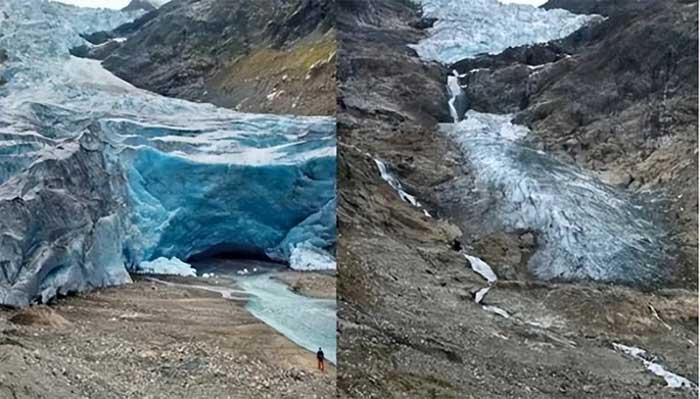
If proactive measures are not taken to slow this trend, the melting glaciers around the world will have widespread and significant impacts on humanity. (Photo: Smithsonianmag).
The existence of glaciers plays a crucial role in climate regulation; their melting will release significant amounts of heat and moisture, altering local climate conditions. At the same time, melting glaciers will lead to instability in water supply, affecting agriculture, energy, and every aspect of daily life.
As glaciers retreat, previously glacier-covered high-altitude areas will face increasing exposure to sunlight and temperatures, exacerbating the speed and severity of climate change.
The melting of glaciers will cause more frequent and severe natural disasters. Glaciers store vast amounts of frozen water, which is released as they melt, resulting in strong floods and landslides. These disasters will cause significant damage to coastal and mountainous regions, potentially leading to casualties and property damage. Additionally, melting glaciers will raise sea temperatures, intensifying the frequency and severity of storms, while bringing more risks and disasters to coastal areas.
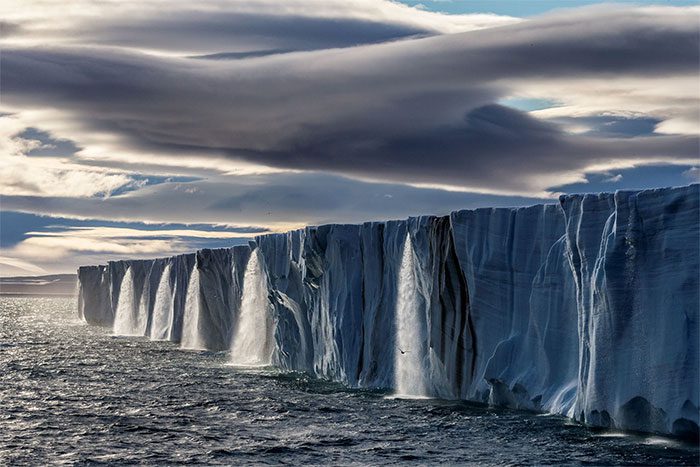
The global impact of melting glaciers on humanity is profound and serious. Rising sea levels, increased climate change, and frequent natural disasters are just a few of the factors that will have a deep impact on human life, the economy, and ecosystems. (Photo: Smithsonianmag).
Reasons Why All Glaciers on Earth Are Melting
Global warming is a significant issue that the world currently faces, primarily caused by the increasing levels of greenhouse gases in the atmosphere, which are raising Earth’s temperatures. As global warming intensifies, glaciers on Earth are gradually melting, profoundly affecting our environment and ecosystems.
Due to the relentless advancement of human activities and industrialization, a considerable amount of greenhouse gases, such as carbon dioxide and methane, is released into the atmosphere. These greenhouse gases not only absorb and radiate heat from the Sun but can also form hot air masses above the surface, causing the average temperature of the Earth to rise. Over the past century, the average temperature of the Earth has risen by about 0.8 degrees Celsius, and this small increase is enough to cause vast glacier regions to melt.
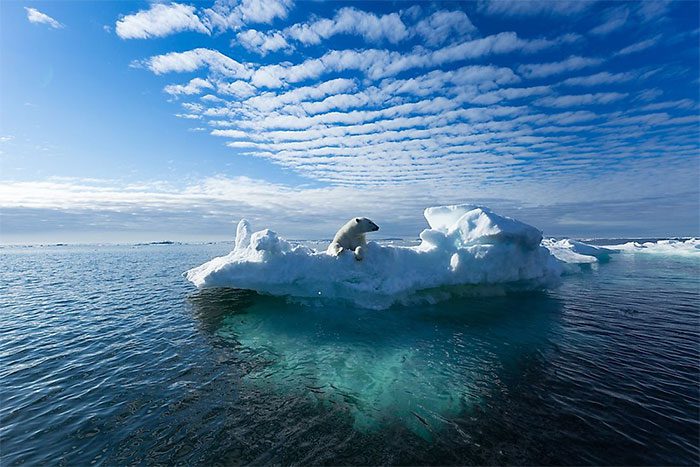
Global warming is one of the main causes of glacier melting. (Photo: National Geographic)
Human activities have accelerated the melting of glaciers. A large amount of carbon dioxide and other greenhouse gases produced by industrial development and transportation, among other activities, is released into the atmosphere, causing serious air pollution. This not only exacerbates the global warming trend but also directly accelerates the melting of glaciers.
Activities such as burning fossil fuels and deforestation lead to the release of soot and particulate matter that settle on glacier surfaces, forming black dust that absorbs solar heat and speeds up the melting of glaciers. Large-scale water resource development by humanity and the increasing discharge of wastewater directly into glacial lakes cause flooding in glacial lakes, further undermining the stability of glaciers and accelerating their melting.
If global temperatures rise by an additional 2 degrees Celsius, sea levels could rise by approximately 60 centimeters, leading to coastal flooding, saltwater intrusion into inland areas, and harm to coastal ecosystems.
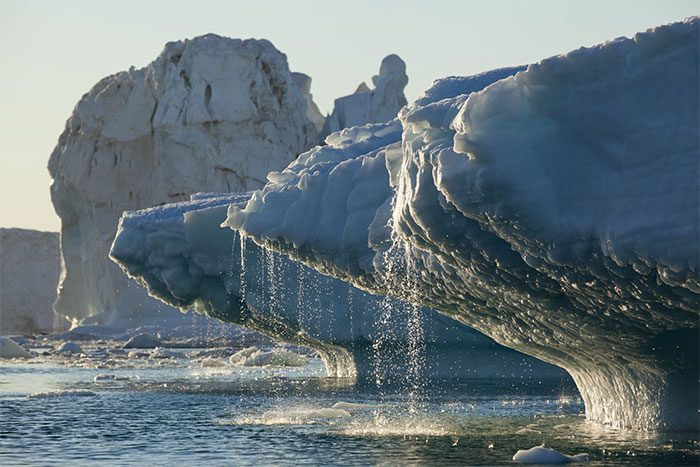
Glacier melting will also lead to water crises. (Photo: National Geographic).


















































